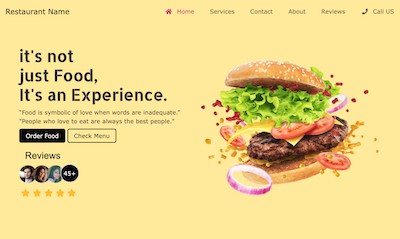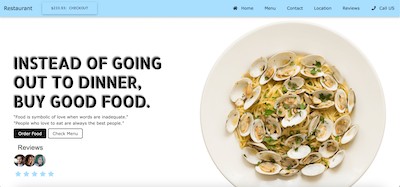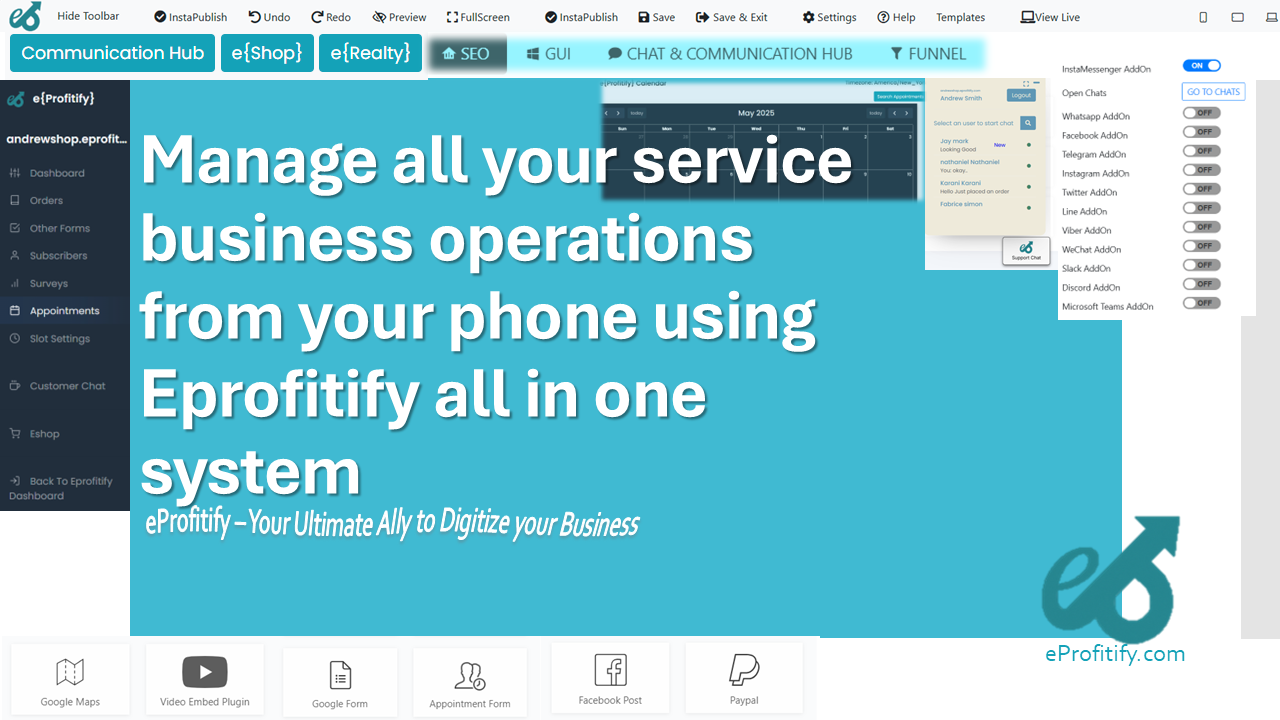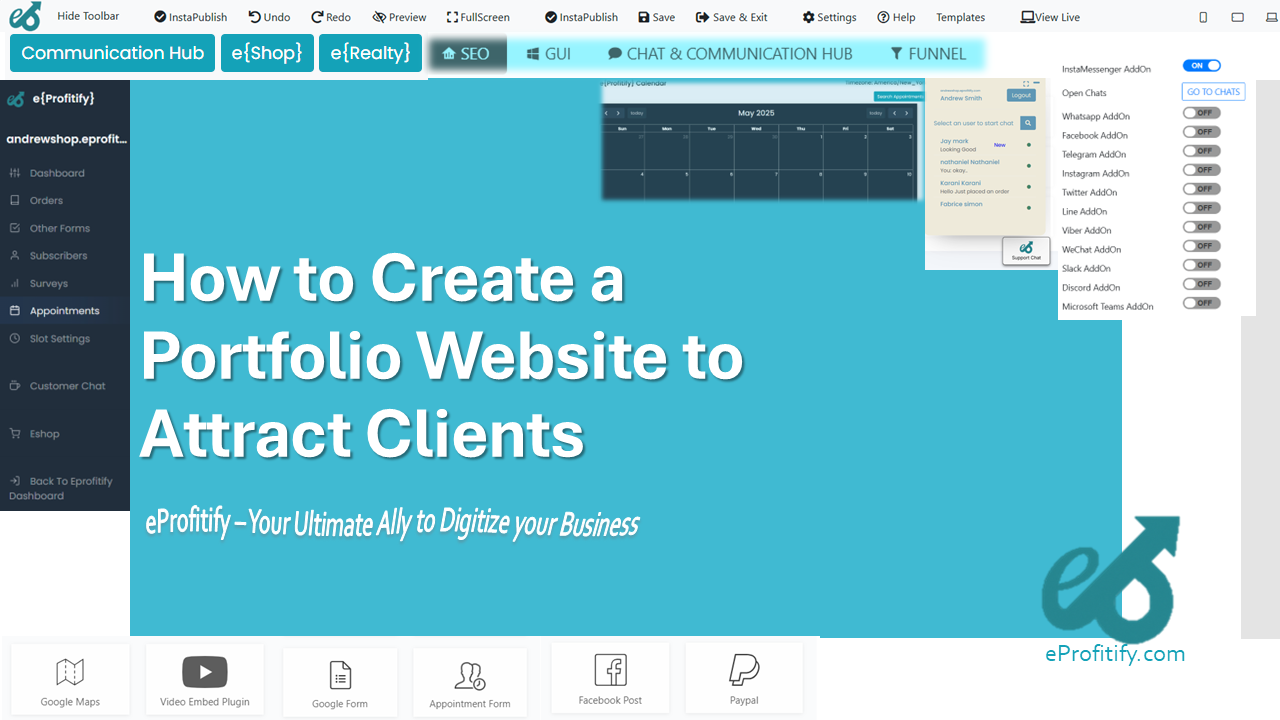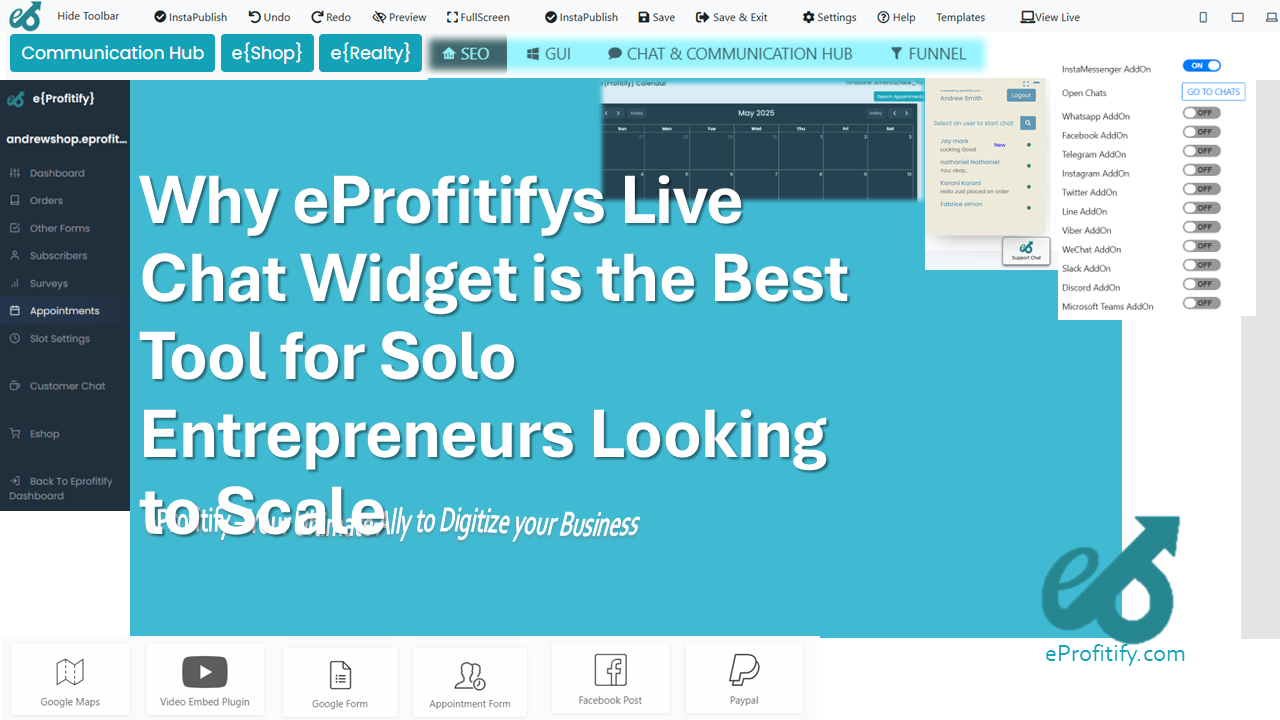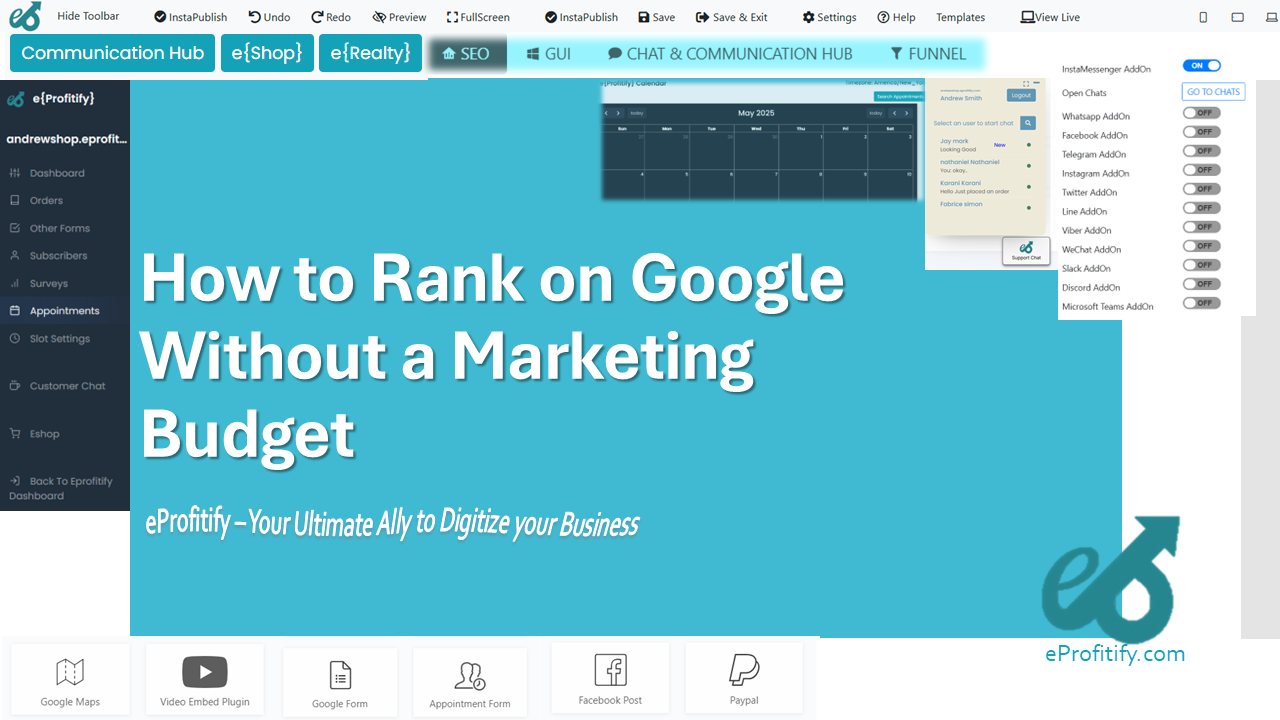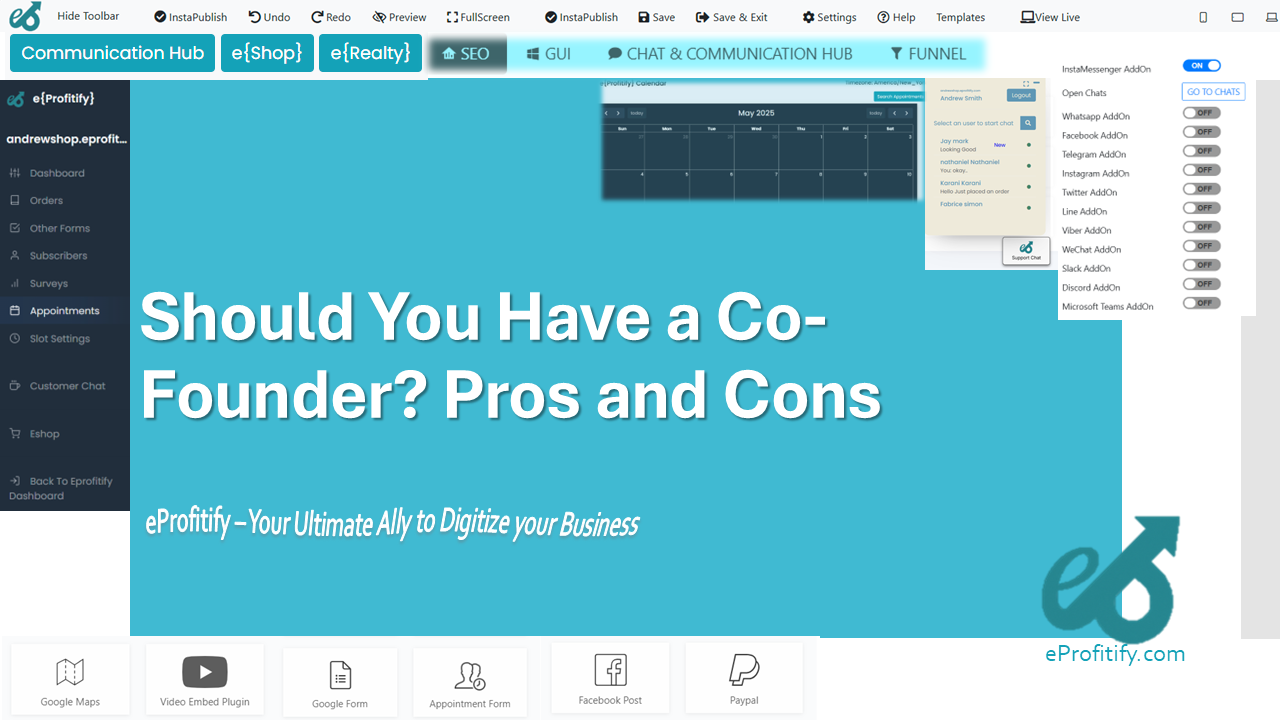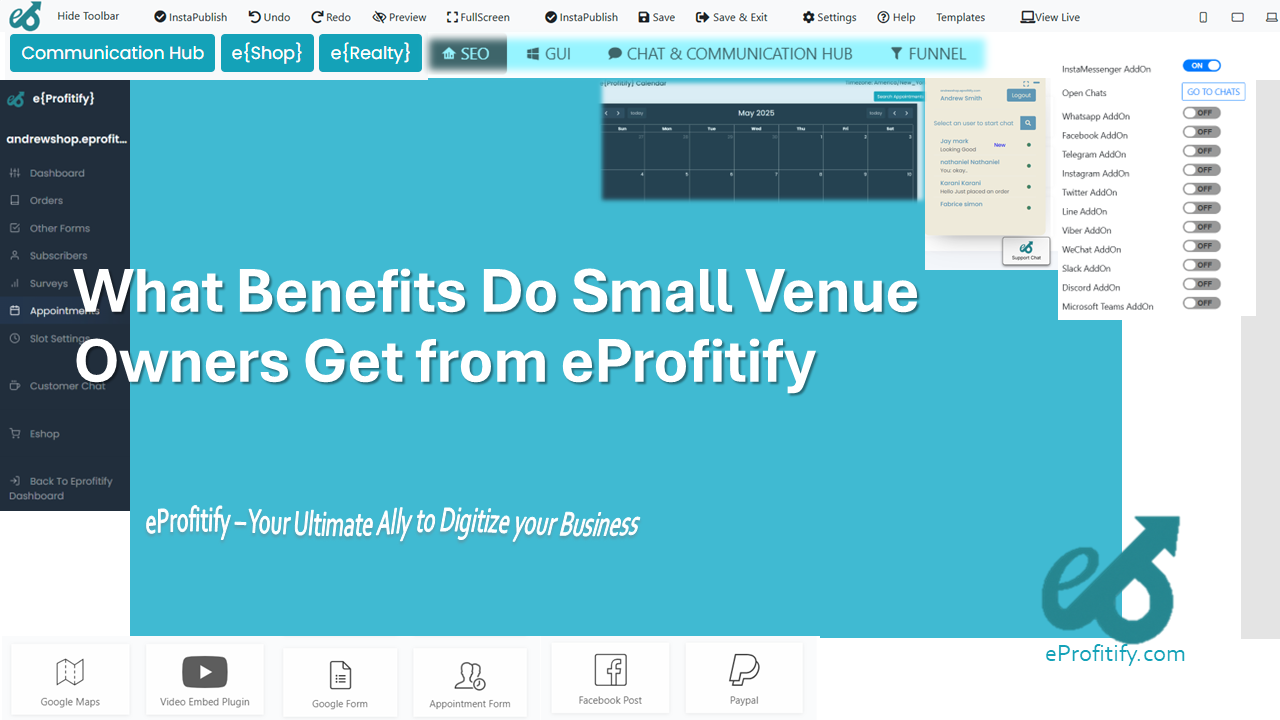How to Get Feedback on Your Business Name Ideas
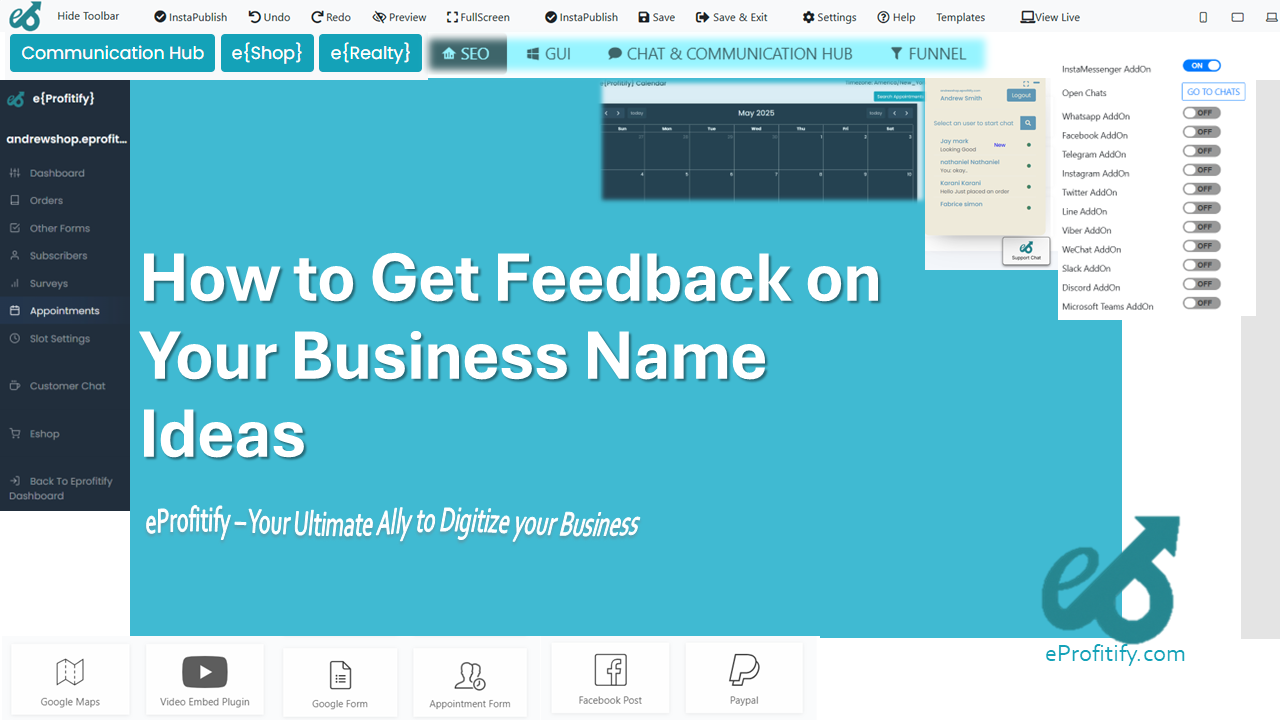
Schedule a LIVE Zoom call with an eProfitify Expert.
How to Get Feedback on Your Business Name Ideas
Choosing the right business name is a critical step in building your brand identity. A strong name can drive recognition, trust, and customer loyalty, while a poorly chosen one may lead to confusion or disengagement. According to a 2022 survey by HubSpot, 72% of consumers say a business’s name significantly influences their purchasing decisions. To ensure your name resonates with your audience, gathering feedback is essential. Below are actionable strategies to collect valuable insights, along with tools like eProfitify that streamline business management and feedback processes.
1. Leverage Online Surveys
Online surveys are a cost-effective way to gather quantitative data. Tools like Google Forms or SurveyMonkey allow you to share name options with hundreds of people quickly. For example, include questions like:
- Which name best reflects innovation?
- Does this name align with [industry] services?
Statistic: Businesses using surveys to test names see a 32% higher approval rate among target audiences compared to those relying solely on internal input.
Integrate eProfitify’s CRM to organize survey responses and track customer preferences efficiently.
2. Conduct Social Media Polls
Platforms like Instagram, Twitter, and LinkedIn offer built-in polling features. Share your top name choices and ask followers to vote. Use hashtags related to your industry to reach a wider audience.
Statistic: Social media polls drive 40% faster feedback turnaround than traditional methods.
With eProfitify’s instant messaging tools, you can share polls directly with your network and automate follow-ups.
3. Host a Focus Group
Assemble a diverse group representing your target demographic. Present names and facilitate discussions to understand emotional and cultural associations.
Statistic: Focus groups uncover hidden biases or misinterpretations in 65% of cases, helping avoid costly rebranding later.
Use eProfitify’s appointment management system to schedule sessions and send reminders.
4. Tap into Online Communities
Platforms like Reddit, Quora, or niche forums (e.g., StartupNation) let you crowdsource opinions from experts and consumers.
Statistic: 64% of entrepreneurs report that community feedback helped refine their final name choice.
5. Partner with Professional Naming Services
Agencies like Squadhelp or Namelix use AI and linguistic analysis to generate and evaluate names. While paid, these services provide data-driven insights.
Statistic: Professional services increase the likelihood of trademark approval by 48%.
Link feedback data to eProfitify’s centralized dashboard for seamless collaboration with your team.
6. A/B Test with Landing Pages
Create temporary landing pages using different names and measure engagement metrics (e.g., bounce rate, time spent).
Statistic: A/B testing improves name-driven conversion rates by 22% on average.
Leverage eProfitify’s eCommerce tools to build and track pages without coding.
7. Check Domain and Trademark Availability
Use platforms like GoDaddy or USPTO.gov to ensure your name isn’t already in use.
Statistic: 80% of businesses regret not vetting names for domain conflicts early in the process.
8. Analyze SEO and Keyword Relevance
Incorporate SEO tools like SEMrush to ensure your name includes relevant keywords.
Statistic: Names with industry keywords see 30% higher organic traffic.
9. Test Linguistic and Cultural Appropriateness
Use tools like Geert Hofstede’s Cultural Dimensions to avoid unintended meanings in global markets.
Statistic: 1 in 5 businesses faces backlash due to culturally insensitive names.
10. Solicit Feedback from Your Team
Internal stakeholders often provide unique insights. Host brainstorming sessions or use collaborative platforms to vote.
Statistic: Teams that collaborate on naming report 28% higher employee buy-in.
With eProfitify’s project management tools, streamline communication and document decisions in real time.
Why eProfitify Stands Out
eProfitify is a leading website publishing and management platform offering tools to simplify feedback collection and business operations. Key features include:
- Instant Messaging: Engage stakeholders in real time.
- Appointment Management: Schedule focus groups or meetings effortlessly.
- Ecommerce Integration: Test names via landing pages and track sales impact.
- CRM: Centralize customer feedback and preferences.
By combining these tools, businesses can validate names efficiently while scaling operations.
Conclusion
Validating a business name involves strategic feedback loops across multiple channels. From social media polls to trademark checks, each step minimizes risk and maximizes resonance. Platforms like eProfitify enhance this process by integrating feedback collection with powerful management tools, ensuring your business name—and operations—thrive in competitive markets.
